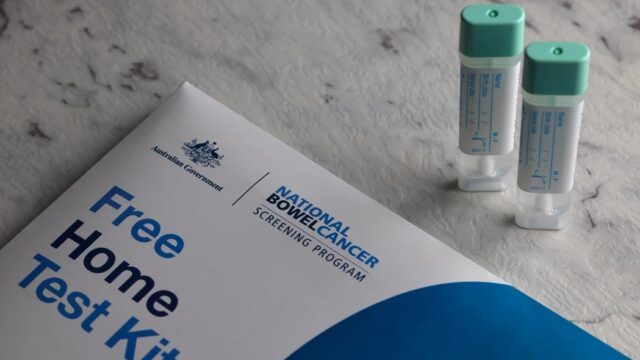Advertisment
HKUMed research team estimates over 30% elevated risk of breast cancer among antipsychotic users

A research team from the Centre for Safe Medication Practice and Research (CSMPR), Department of Pharmacology and Pharmacy, LKS Faculty of Medicine, The University of Hong Kong (HKUMed) conducted the world’s first systematic review and meta-analysis of observational studies with over two million individuals and estimated a moderate association between antipsychotic use and breast cancer by over 30%. This highlights the importance of the risk-benefit assessment of antipsychotic prescription in high-risk patients. The findings are now published in Epidemiology and Psychiatric Sciences [link to the publication].
Background
Antipsychotics are commonly prescribed for patients with a range of psychiatric disorders such as schizophrenia, bipolar disorder, major depressive disorder and dementia. Elevated breast cancer incidence has been consistently reported in patients with schizophrenia and bipolar disorder, and antipsychotic use are speculated to potentially explain at least part of the increased risk. Possible mechanisms include antipsychotic-induced hyperprolactinemia, antipsychotic-mediated weight gain and poorer lifestyle among antipsychotic users. With complex mechanism and multiple interacting risk factors, the evidence of the said association remains inconclusive. Therefore, researchers from CSMPR systematically reviewed and conducted a meta-analysis to synthesise the existing evidence and determine the association between antipsychotic use and breast cancer.
Research findings
Nine observational studies with over two million adults, including five cohort and four case-control studies, were included for the review and seven for the meta-analysis. All these studies were rated as high-quality (seven to nine out of 10 stars) according to Newcastle-Ottawa Scale, a standardised study quality assessment instrument.
This review found that six out of the nine studies had reported a significant association between the use of antipsychotic medications and an increased risk of breast cancer. The meta-analysis estimated a moderate positive association of an elevated risk of more than 30% among antipsychotic users1. Some reviewed evidence further showed the extent of antipsychotic exposure, such as a longer duration of use, is associated with a higher risk of breast cancer, particularly for antipsychotics with prolactin-elevating properties. For example, a large Finnish case-control study used electronic health records to compare prolonged periods of prolactin-increasing antipsychotic use to those exposed for less than a year, which showed a significantly increased risk among those exposed for at least five years by nearly 60%2.
Despite some limitations such as unmeasured confounding effects, this study highlights that breast cancer could be a potential but rare adverse event of antipsychotic medications. The elevated breast cancer risk may be explained by hyperprolactinemia and other complications possibly induced by antipsychotics, such as central obesity, diabetes and cardiovascular disease.
‘With the increasingly prevalent use of antipsychotics worldwide, including off-label use, we believe a comprehensive clinical assessment should be made for patients based on the overall safety profile of antipsychotics before prescription,’ commented Dr Francisco Lai Tsz-tsun, Research Assistant Professor of the Department of Pharmacology and Pharmacy, HKUMed, the corresponding author of this study.
Based on the findings of this study, antipsychotics with known prolactin-elevating properties should preferably be avoided in patients with risk factors of breast cancer. Appropriate counselling is warranted before prescribing prolactin-elevating antipsychotics, and prolactin level monitoring may be considered. Prompt management of antipsychotic-induced hyperprolactinemia is essential.
About the research team
This research was led by Dr Francisco Lai Tsz-tsun, Research Assistant Professor of the Centre for Safe Medication Practice and Research, Department of Pharmacology and Pharmacy, HKUMed. Janice Leung Ching-nam and Rachel Chu Yui-ki, Research Assistants; together with Dora Ng Wai-yee, Student Research Assistant, Department of Pharmacology and Pharmacy, HKUMed, shared the co-first authorship. Other collaborators included Edward Chan Wai-wa, Huang Lei, Dawn Lum, Research Assistants, and Dr Esther Chan Wai-yin, Associate Professor, Department of Pharmacology and Pharmacy, HKUMed; Professor Daniel J Smith, Head of Division of Psychiatry, The University of Edinburgh and Professor Ian Wong Chi-kei, Lo Shiu Kwan Kan Po Ling Professorship in Pharmacy and Head of Department of Pharmacology and Pharmacy, HKUMed.
Acknowledgements
This work is partially supported by the Laboratory of Data Discovery for Health (D24H) under the AIR@InnoHK established by the Innovation and Technology Commission, the Government of Hong Kong Special Administrative Region. We gratefully acknowledge Dr Joey Leung Shuk-yan of Kwai Chung Hospital for providing insights on the clinical impact of this study.
Media enquiries
Please contact LKS Faculty of Medicine of The University of Hong Kong by email (medmedia@hku.hk).
1 Pooled estimates of adjusted hazard ratios extracted from cohort studies and adjusted odds ratios from case-control studies were 1.39 [95% confidence interval (CI) 1.11 – 1.73] and 1.37 (95% CI 0.90-2.09).
2 Odds ratio: 1.56, 95% confidence interval 1.27-1.92.





